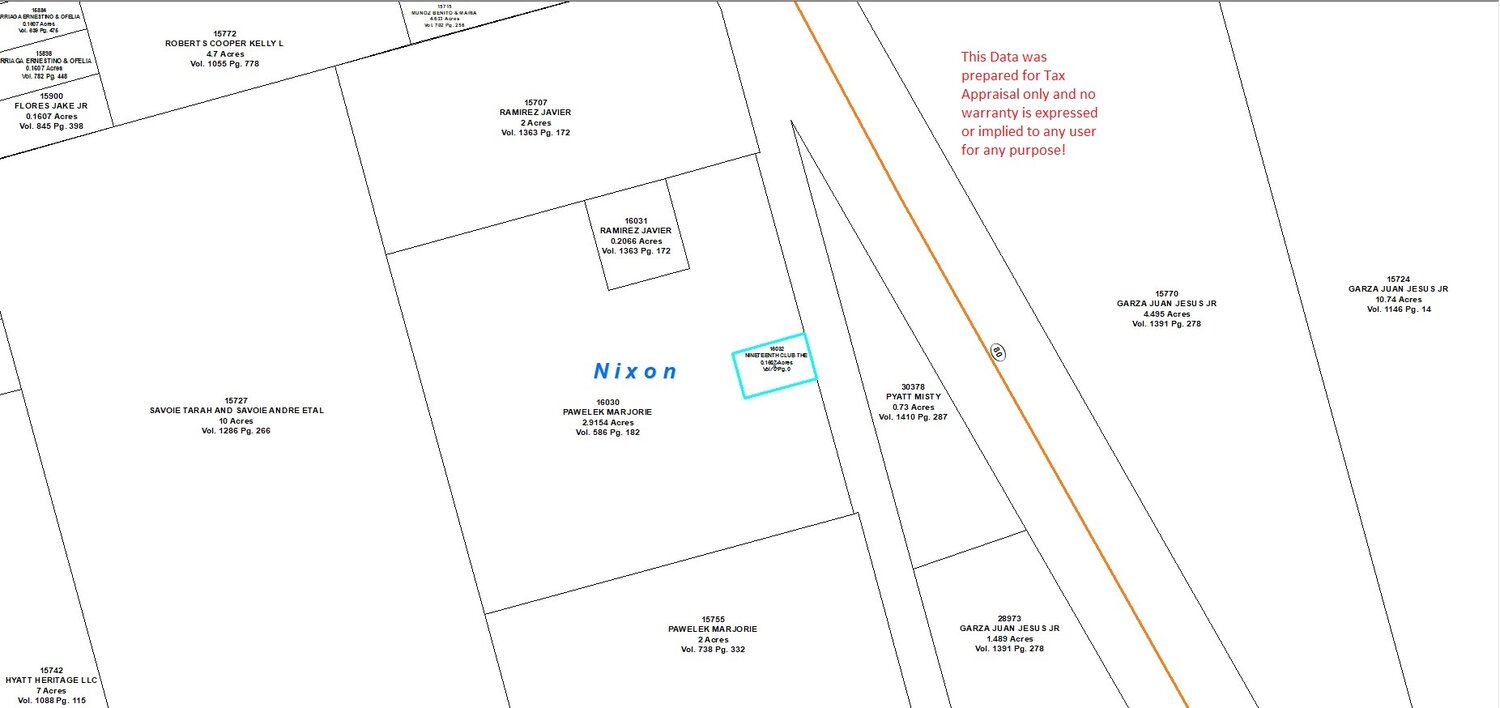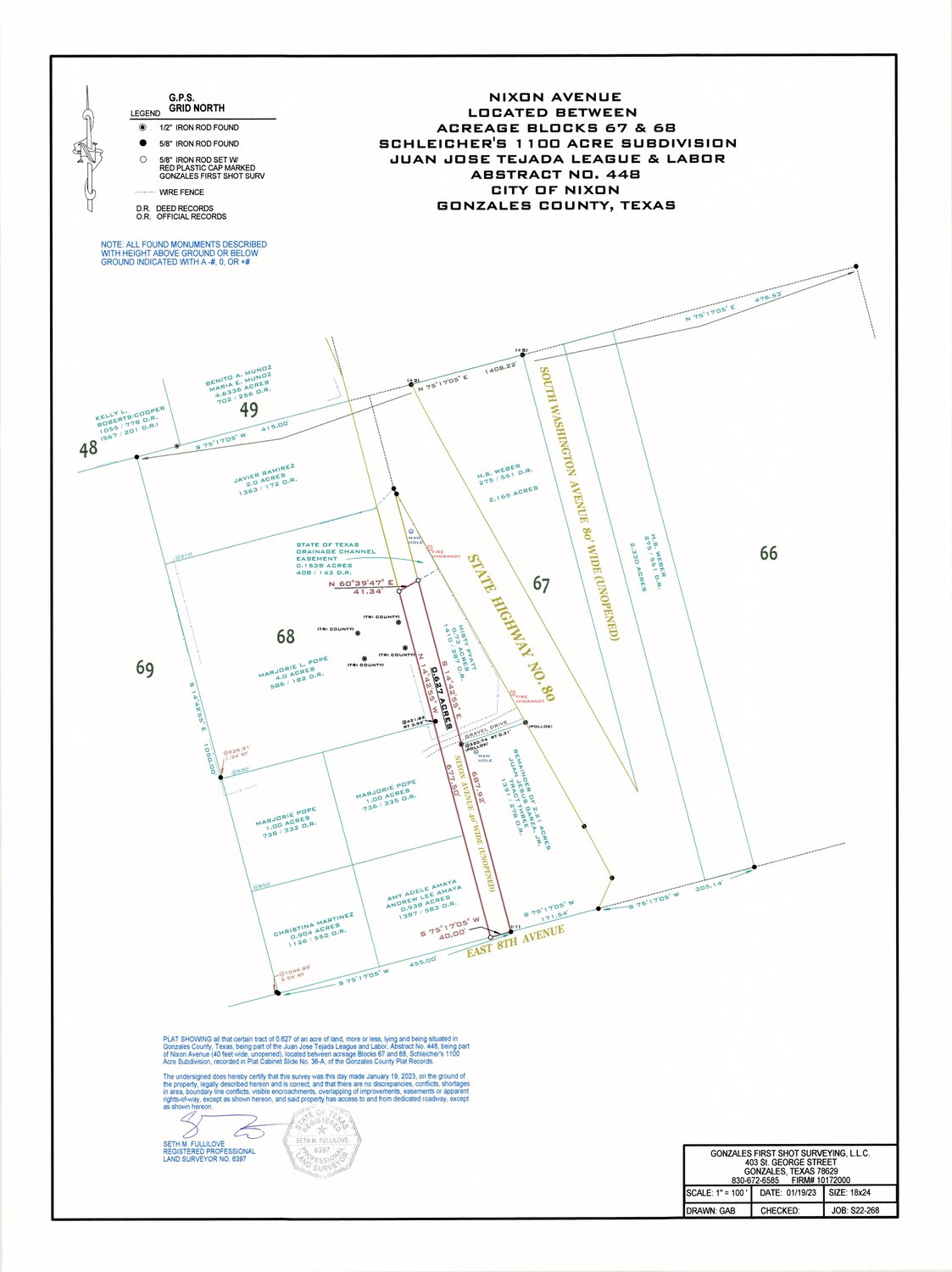Nixon tells Nineteenth Club city cannot tear down private fence
Representatives of the Nineteenth Club Civic Center were left with answers they did not want to hear after the Nixon City Council declined Thursday, Sept. 19, to either tear down a private fence or install a gate on an easement to their landlocked property.
Beverly Houston came before the council to present a summary of two years worth of communications with Nixon City Attorney Eddie Escobar, former City Manager Harold Rice, the Gonzales Central Appraisal District and a Gonzales County Clerk’s office employee.
The Nineteenth Club Civic Center, which is named for the Juneteenth holiday, owns 0.1607 acres of land in the Davis Addition valued at 7,630 feet that it has sought to sell recently and has used in the past for Juneteenth events.
She believes the communications prove the city promised in 2022 to remove a fence installed by an adjoining property owner on what has long been designated Nixon Avenue and that the city has reneged on its promise.
“We will provide evidence where we received approval from the city attorney and city council after making presentations twice before,” Houston said. “We are back before you in the third year. As taxpayers, be it individuals or businesses or religious organization, we should all be able to rely on our local government, our elected officials, to follow through with their commitment.”
She said Escobar sent letters to the former landowner and the current landowner about the need to remove the fence or the city would be taking action and the city had said it would see that the fence would be taken down, but that did not happen.
“We were told twice the fence was going to be taken down, and now he (Escobar) is changing his mind, right? So, you know, it's very sad. It's a very sad thing,” Houston said.
However, Escobar said at the Thursday meeting that further investigation into the property situation by county surveyor Seth Fullilove and attorney Christi Ortman Fullilove revealed the city has a 40-foot easement, but Nixon Avenue had been abandoned and never completed as a road, causing him to change his position.
“The letter was sent (to the landowner). I don’t deny that,” Escobar said. “Once I spoke to (Christi Fullilove), the city's position changed once I had a conversation with the previous administration. At that point, the only thing that is needed is for the city to have access to the easement. The city is under no obligation to have access for private property owners down a road that is no longer owned by the city of Nixon.”
Escobar said he explained this to Houston and the other members of the Nineteenth Club when they spoke to the council in November 2023.
“We advised at that time if the fence that's being put up is landlocking private property, which this is, then a suit would have to be filed against the person that is landlocking that property,” Escobar said. “The city is no part of that. The city is not going to file suit on private property issues. That's a civil matter.
“The intent the whole time was they can't block the city easily. This has always been about the easement. As soon as we got verification from Stewart Title Company, which is a national title company, it said the only thing the city owned is the easement, there's nothing else for the city to do. What that would amount to is the city filing suit against the resident for the benefit of somebody that owns private property, and the city is just not legally able to do that.”
Escobar said the only action for Nineteenth Club to do is “take this up in district court.”
“There are laws in the property code that prevent that,” he said. “There are remedies here for you, but it just not a remedy that the city can undertake.”
City Councilmember Justin La Fleur asked Escobar if the city could install a gate across the easement that would preserve the city’s rights and also allow the Nineteenth Club access. Escobar said he would have to research that because he has concerns about whether it is legal to do.
“I don't know the answer, whether it's a yes or a no, before I say because of the fact that the easement creates a use interest and not a property interest, then that means that that property is owned by somebody else,” Escobar said. “So if we have that easement, then we would have to get permission from that person that owns the actual property, and not just the use interest of that easement.”
La Fleur did make a motion to allow Escobar and interim City Manager Darryl Becker determine if a gate can be placed across the easement to allow the city to ensure access to the property.
Donald Hoffman of Rancho-Nixon Historical Association told Houston there is a thing in Texas law called an implied easement, which prohibits landowners from denying another landowner access to their property if it is landlocked.
“I was denied property access to my property and I went to my attorney, and I was informed that I could gain access through that property with an implied easement,” Hoffman said. “The easement that I had used for years was implied, and therefore the new landowner could not prevent me from obtaining access to my property. An implied easement is as legal as any written easements you can have.
“Why don't we approach this from the implied easement stage, where these people can have access to their property and the current landowner cannot keep them out on the basis of an implied easement?”
Escobar agreed with Hoffman’s comment, stating this is what he has been trying to tell the Nineteenth Club they must do, but it requires a judge to sign off on an order.
The council eventually voted on La Fleur’s motion with all members voting against it as they seemed to believe the Nineteenth Club needs to go through court to get an implied easement signed by a judge rather than the city getting involved.
Comments









